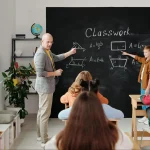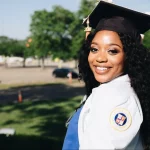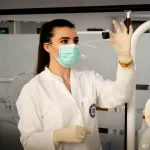How Do You Balance Experience With Formal Education in Your Career?
Striking the perfect balance between practical experience and formal education can be a career-defining art. We’ve gathered insights from CEOs, founders, and other experts to share their wisdom. From fostering ongoing learning and application to integrating theories with real-world practices, explore the diverse strategies in these twenty-nine responses.
- Foster Ongoing Learning and Application
- Nurture Both Roots and Blooms
- Combine Continuous Learning With Application
- Education and Experience Foster Skill Set
- View Career Development as a Narrative
- Apply Theoretical Principles in Real Settings
- Leverage Theoretical Knowledge and People Skills
- Military to Marketing: Education Meets Adaptability
- Pair SEO Certifications With Hands-On Experience
- Merge Education Tools With Real-World Scenarios
- Practice and Reading Complement Each Other
- Enhance Skills by Applying Academic Concepts
- Self-Education and Curiosity Drive Operations
- Apply Theoretical Knowledge in Realistic Settings
- Attend Seminars for Learning and Networking
- Integrate Education With Client-Centric Strategies
- Synergize Learning With Hands-On Projects
- Combine Business and Legal Backgrounds
- Theory and Practice Vital for Patient Care
- Apply Legal Knowledge in Complex Scenarios
- Marry Education With Content Marketing Experience
- Apply Gardening Knowledge in Real Situations
- Continuous Learning Beyond Degree Certification
- Flexibility and Open-Mindedness Trump Formal Education
- Family Dynamics Inform Legal Practice
- Surgical Education Enhanced by Hands-On Practice
- Certify Coding Skills to Complement Experience
- Gain Insights Beyond Classroom in Real Estate
- Integrate Tax Theory With Real-World Practice
Foster Ongoing Learning and Application
As the owner of a recruiting platform, I believe that balancing practical experience with formal education is crucial for both personal and professional development. While formal education provides a strong theoretical foundation and critical-thinking skills, practical experience allows individuals to apply this knowledge in real-world scenarios.
It’s essential to foster an environment where ongoing learning is encouraged, enabling professionals to stay up-to-date with industry trends and advancements. By integrating hands-on experience with formal education, candidates become well-rounded, adaptable, and ready to tackle the dynamic challenges of the modern workforce. This blend enhances employability and ensures long-term career growth and success.
 Amit Doshi
Amit Doshi
Founder & CEO, MyTurn
Nurture Both Roots and Blooms
Balancing practical experience with formal education in my career is a lot like maintaining a garden—it’s all about nurturing both the roots and the blooms. I consider formal education as the roots, providing the essential nutrients and knowledge base needed to ground my professional growth. On the other hand, practical experience is the flowering part, where I get to put theories into practice, see ideas come to life, and learn from real-world feedback.
I make a point to take on diverse projects and roles that challenge me to apply classroom learning in practical settings, ensuring that each experience helps me grow more robust and versatile. I also engage in continuous learning through mentorships, workshops, and seminars to keep both the roots and blooms thriving. This approach keeps my career vibrant and fruitful, always ready to adapt and flourish in changing environments.
Frances Weissenberger
Educational Consultant, Elevated Achievement
Combine Continuous Learning With Application
Balancing practical experience with formal education in my career involves strategically combining continuous learning with hands-on application. I prioritize formal education to build a solid theoretical foundation and stay updated on industry trends through degrees, certifications, and workshops.
Simultaneously, I seek practical experiences by undertaking challenging projects, internships, and on-the-job training. Networking with industry professionals and participating in professional organizations further bridges the gap between theory and practice. This approach ensures my skills remain relevant and adaptable, leveraging education and experience for career growth.
 Daniel Bunn
Daniel Bunn
Managing Director, Innovate
Education and Experience Foster Skill Set
Formal education has been the essential foundation in my career, equipping me with theoretical knowledge and critical-thinking skills. However, the real test comes in applying these principles practically. Experience, therefore, plays an important role. It allows me to adapt and evolve alongside the rapidly changing digital landscape, where new tools and trends emerge constantly.
This combination of education and practical experience fosters a well-rounded skill set. While education gives me the groundwork and broad perspectives, hands-on experiences refine these skills, making me agile and proactive in facing new challenges. This balance is important for staying relevant and excelling in digital marketing.
 Shane McEvoy
Shane McEvoy
MD, Flycast Media
View Career Development as a Narrative
I’ve adopted an unusual approach to balancing academic education and practical experience by viewing both through the lens of narrative. Formal education is like reading a book—an organized narrative that communicates fundamental knowledge and theoretical frameworks. Meanwhile, practical experience is similar to living the novel—coming across plot twists, managing problems, and finally applying the lessons learned from the story.
By framing my educational career as a narrative arc, I’ve developed a greater respect for both formal education and hands-on experience. My learning path combines classroom education, hands-on application, and reflective practice in the same way as a well-written tale does.
I’ve discovered the effectiveness of narrative inquiry as a strategy for combining formal education and practical experience. Rather than passively receiving knowledge, I actively engage with the material by situating it within the larger narrative of my own experiences and goals.
 Volen Vulkov
Volen Vulkov
Co-Founder, Enhancv
Apply Theoretical Principles in Real Settings
In my role as a seasoned executive with a focus on marketing strategy and brand strategy, balancing practical experience with formal education has been critical. My academic credentials, including a PCM from the American Marketing Association and studies at prestigious institutions like Temple University, Cornell University, and the Wharton School, provided me with a theoretical understanding of marketing principles and strategic frameworks. However, it’s the application of these principles in real-world settings that has truly defined my success.
For instance, while my formal education taught me about market segmentation and consumer behavior, it was through hands-on experiments at various companies where I learned how to apply these concepts to create targeted marketing campaigns that effectively resonated with specific audience segments.
Furthermore, my practical experiences have enabled me to adapt theoretical models to suit specific business contexts. This adaptability was crucial when I developed a connected marketing strategy that integrated both digital and physical channels, allowing a traditional retailer to successfully compete in the digital age.
Thus, while formal education provides a solid foundation and credibility in the field, it is the continuous application and adaptation of this knowledge through practical experience that breeds true innovation and results in marketing. This synergy of education and experience enhances strategic thinking and ensures that strategies are grounded in reality and capable of achieving tangible outcomes.
 Timothy J Williams
Timothy J Williams
Principal Consultant, Thinksia
Leverage Theoretical Knowledge and People Skills
One must remember that formal education provides a foundation, particularly for understanding theories, which are constant and unchanging. You will rely on this theoretical knowledge when solving problems or figuring things out, much like using 2+2=4 as a base for more complex equations. Practical experience, on the other hand, involves applying people skills, presenting ideas, and explaining concepts clearly. These skills develop through work experiences and personal growth. Both formal education and practical experience are essential for success.
 TK Morgan
TK Morgan
Founder and Visionary, Tuesday At 1030
Military to Marketing: Education Meets Adaptability
Balancing practical experience with formal education has been a cornerstone of my career, especially transitioning from the military into digital marketing and software development. My formal education provided a structured understanding of business and marketing principles, but it was the practical application during the development of my start-ups that truly deepened my skills and harnessed my innovative potential.
For instance, when founding my first digital marketing company, I quickly learned that while academic knowledge of marketing theories was crucial, the digital landscape demanded rapid adaptability and hands-on trial and error with real-time data. This real-world application led to our business achieving a successful exit. It was the interplay of my structured education and the agility gained from practical experiences that forged our path to success.
Moreover, the practical skills I developed in problem-solving and creative thinking during my military service played a pivotal role in navigating the challenges of entrepreneurship. These experiences taught me to think on my feet and adapt strategies swiftly, a necessity in the fast-evolving tech and marketing industries.
Blending education and real-world experience fuels my current projects, allowing me to innovate continually and stay ahead in a competitive landscape. This approach drives business growth and empowers my team, as I use these insights to mentor and foster a culture of continuous learning and adaptation.
 Joe Amaral
Joe Amaral
Founder & COO, Anthem Software
Pair SEO Certifications With Hands-On Experience
As an SEO specialist, there is no formal education available for my profession. You can obtain a degree in marketing, but a standard bachelor’s degree isn’t an option. Even though practical experience is the primary method for becoming proficient in search engine optimization, there are other options to help balance experience and education.
Several well-known, trusted marketing agencies offer both free and paid SEO certification programs. I’ve obtained a couple of these certifications myself to pair alongside the years of hands-on experience that I have. I believe completing these certification programs demonstrates that I acknowledge the importance of education as well as take my career seriously.
Having only practical experience with zero proof of education can be just as detrimental to your career as having lots of formal education with no experience to show. Both are influential in having a well-rounded résumé.
 Christy Hunter
Christy Hunter
SEO Coach and Educator for Creative Small Businesses, SEO Coaching for Creatives
Merge Education Tools With Real-World Scenarios
As a tech CEO, I liken my formal education to the toolset in a mechanic’s garage. It has provided me with essential technical skills and foundational theories—my wrenches and screwdrivers, so to speak. Practical experience, in contrast, is like repairing and maintaining different types of vehicles with those tools. It has molded my intuitive problem-solving skills and honed my adaptability.
I do not separate the two but rather merge them. I consistently apply my tools (education) in real-world scenarios (experience). This way, they complement each other, propelling the engine of my company forward.
 Abid Salahi
Abid Salahi
Co-Founder & CEO, FinlyWealth
Practice and Reading Complement Each Other
The right balance, in my opinion, is 90% practical experience and 10% formal education.
As an entrepreneur for 15+ years, I’m a strong proponent of learning through practice and complementing it with reading educational books. Ideally, the topics of the books that I read match what I’m learning through practice while growing my businesses.
From my experience, learning through practice and failure has a greater impact on long-term learning than formal education or reading books. You can be told everything you need to know in a formal education setting, but until you go out and implement it, your learning will only go so far. It’s the struggles and roadblocks of putting it into practice where you’ll learn the most important things about that skill.
For example, if you’re interested in starting a business with a skill set that you have, go out and try it for one year. You’ll learn way more immersing yourself in the lifestyle than sitting in a classroom for that year. Guaranteed.
 Connor Gillivan
Connor Gillivan
Entrepreneur, Owner & CMO, TrioSEO
Enhance Skills by Applying Academic Concepts
Balancing practical experience with formal education in my career involves leveraging the strengths of each to enhance my overall skill set and professional development. I view formal education as providing a solid foundation of theoretical knowledge and critical-thinking skills, while practical experience offers hands-on application and real-world problem-solving abilities.
To strike a balance, I actively seek opportunities to apply concepts learned in academic settings to real-world scenarios through internships, projects, and part-time roles. Conversely, I draw upon my practical experiences to enrich my understanding of theoretical concepts and refine my skills through continuous learning and reflection. By integrating both practical experience and formal education, I ensure a well-rounded approach to my career development that enables me to adapt to diverse challenges and opportunities.
 Dr Haritha Lekha
Dr Haritha Lekha
Author and HR Associate, harithalekha.com
Self-Education and Curiosity Drive Operations
Formal education becomes less and less important the more you advance in your career. In operations, in particular, education is just a way of gaining an understanding of the different areas of a business, but beyond that, everything is experience. Processes within organizations can change so quickly that a degree can become antiquated within years. However, experience consistently evolves. If anything, I’m a strong believer in self-education, reading, comparing, observing, and being curious.
 Alexandru Samoila
Alexandru Samoila
Head of Operations, Connect Vending
Apply Theoretical Knowledge in Realistic Settings
Balancing practical experience with formal education in my career involves a strategic approach where I actively seek opportunities to apply theoretical knowledge in real-world settings. This integration begins by selecting educational programs that emphasize practical skills alongside academic learning. For instance, I prioritize enrolling in courses that offer internships, workshops, or project-based learning, which allow me to implement what I’ve learned in a controlled yet realistic environment.
Furthermore, I make a conscious effort to engage in continuous learning outside of formal education. This includes attending industry conferences, participating in online courses that focus on current industry practices, and seeking mentorship from experienced professionals. These activities enhance my practical skills and keep me updated with the latest trends and technologies in my field, ensuring that my knowledge remains relevant and applicable. This dual focus on education and experiential learning fosters a well-rounded professional profile, making me adaptable and proficient in my career.
 Gustav Nicholson
Gustav Nicholson
Editor, Ampifire
Attend Seminars for Learning and Networking
It is crucial for any professional to continuously learn and improve their skills, but at the same time, gaining hands-on experience is equally important. One way I balance these two aspects is by regularly attending seminars and workshops in my field. These events provide me with the latest information and updates on the real estate industry, as well as practical tips and strategies from experienced professionals. I also make sure to actively participate in these events by asking questions and sharing my own experiences, which helps me gain a deeper understanding of the topics being discussed.
I have found that networking with other professionals in my field has been extremely beneficial. By connecting with other real estate agents, I am able to learn from their experiences and gain valuable insights into the industry. This helps me improve my skills and expands my professional network, which can lead to potential business opportunities in the future.
Another way I balance practical experience with formal education is by taking online courses or pursuing certifications related to my field. These courses provide me with a structured learning experience and allow me to gain new knowledge and skills that I can immediately apply in my work. They also serve as a great way to stay updated on industry trends and best practices.
 John Swann
John Swann
Founder & CEO, John Buys Your House
Integrate Education With Client-Centric Strategies
Balancing practical experience with formal education has been a fundamental aspect of my career, especially in shaping the investment and financial planning strategies at BlueSky Wealth Advisors. My educational background, including a Bachelors of Science from the United States Military Academy and a Chartered Financial Analyst designation, provided a robust theoretical framework in finance and investments. However, it is the hands-on experience and direct client interaction over the years that have truly refined my ability to implement effective financial strategies.
My role in defining firm-wide investment strategies and formulating advanced financial planning involves both deep theoretical knowledge and a nuanced understanding of market behaviors and client needs. This dual approach allows me to tailor strategies that are not only academically sound but also practically applicable, enhancing client satisfaction and financial outcomes. An instance that highlights this balance is the development of our sophisticated tax strategies, where my formal training in financial analysis combines with practical insights gained through direct client consultations to optimize their tax situations effectively.
Moreover, my experience serving on various boards, such as the CarolinaEast Health System, has enriched my practical understanding of financial governance and strategic planning in different sectors. This experience has been invaluable in advising our clients at BlueSky Wealth Advisors, particularly in aligning their investment portfolios with broader financial goals and economic contexts. The integration of these practical experiences with my formal education enables a holistic approach to financial planning that addresses both the immediate financial needs and long-term aspirations of our clients.
 David Blain, CFA
David Blain, CFA
Chief Executive Officer, BlueSky Wealth Advisors
Synergize Learning With Hands-On Projects
Balancing practical experience with formal education in my career has been essential. I continuously seek out hands-on projects to apply theoretical knowledge and gain real-world insights. I also enroll in relevant courses and certifications to stay updated and deepen my expertise. This combination ensures I am both knowledgeable and adept at solving real problems.
For me, it’s about finding a synergistic relationship where learning and doing feed into each other. Networking with industry professionals also provides diverse perspectives and keeps me grounded. Ultimately, maintaining this balance has been key to evolving and excelling in my career.
 Valentin Radu
Valentin Radu
CEO & Founder, Blogger, Speaker, Podcaster, Omniconvert
Combine Business and Legal Backgrounds
Balancing practical experience with formal education has played a pivotal role throughout my legal career. Particularly, my dual background in business administration and law powerfully synergizes when handling complex business litigation and personal injury cases. For instance, my theoretical knowledge from the College of Charleston enhances my understanding of business dynamics, which is crucial in litigation involving commercial entities. However, it is the hands-on legal experience gained at Cumberland School of Law, coupled with the real-world application of these principles, that refined my ability to construct persuasive legal strategies and achieve favorable outcomes for my clients.
During my time at Cumberland, participating in a nationally-ranked trial program where I secured multiple national and regional championships was instrumental. It wasn’t just about learning the law; it was about applying it under pressure, adapting to the dynamic nature of courtroom environments, and understanding the human elements in legal disputes. This experience was invaluable, enabling me to navigate the complexities of actual court proceedings with confidence and precision.
Moreover, the continuous advancement of technology in the legal field underscores the importance of balancing practical skills with ongoing education. My involvement in learning and adapting to new legal technologies, like AI in legal research and digital case management, has streamlined my practice and provided my clients with more efficient and effective legal services.
Each case I handle benefits from this blend of foundational legal education, practical experience, and technological proficiency, allowing me to offer comprehensive, informed, and innovative legal solutions. This approach ensures that I stay relevant and competitive in an evolving legal landscape, ready to adapt and thrive in the face of new challenges and opportunities.
 M. Denzell Moton, Esq
M. Denzell Moton, Esq
Owner, Moton Legal Group
Theory and Practice Vital for Patient Care
Balancing practical experience with formal education in my career involves a continuous process of learning and applying. My time at chiropractic and acupuncture schools provided a solid foundation of knowledge, while hands-on experience allowed me to refine these skills in real-world situations. I integrate what I learn from each patient encounter with my educational background to offer tailored, effective treatments. Continuing education courses and staying updated with the latest research ensure that my practice evolves. This blend of theory and practice is vital for providing the best care possible.
 Dr. Peter Hinz
Dr. Peter Hinz
Founder, Chiropractor, and Certified Acupuncturist, Cool Springs Chiropractic
Apply Legal Knowledge in Complex Scenarios
Balancing practical experience with formal education has been foundational in my career as a tax, trust, and estate lawyer, particularly in handling intricate matters that demand both deep legal knowledge and real-world pragmatism. The complexities encountered in this field require both a scholarly understanding of law and an ability to apply this knowledge effectively in diverse scenarios.
One stark example is a case that involved international tax issues combined with estate planning. My formal education, including a Master’s in Taxation, provided me with the theoretical tools necessary for understanding the multifaceted legal frameworks at play. However, it was my hands-on experience in navigating previous complex trust and estate cases that allowed me to devise a strategic approach that was compliant with the intricate tax laws and tailored to the client’s unique circumstances and goals.
Moreover, my role often involves conflict resolution where theoretical knowledge must be coupled with tactical acumen gained through real-world experience. For instance, in a high-stakes estate litigation, while my educational background laid down the legal principles, my practical tactics in negotiation and mediation were crucial in reaching an amicable settlement that saved all parties significant time and financial resources. This blend of knowledge and practice allows for nuanced solutions that satisfy clients’ immediate needs and long-term interests at the same time.
 David Brillant
David Brillant
Founder, Brillant Law Firm
Marry Education With Content Marketing Experience
In content marketing, the magic lies in the marriage of formal education and real-world experience. Here’s how I balance them.
Formal education provides the foundation. My marketing degree equipped me with core principles like content strategy, SEO, and audience analysis. This knowledge serves as a compass for my daily tasks.
Experience hones those skills. Every project throws new curveballs. Analyzing website data, testing content formats, and iterating based on results refine my understanding and keep my skill set sharp.
Continuous learning is key. The world of marketing is always changing. I read blogs in the field, attend webinars, and take online courses to stay current. This fills the gap between current trends and theory.
 Faizan Khan
Faizan Khan
Public Relations and Content Marketing Specialist, Ubuy Australia
Apply Gardening Knowledge in Real Situations
Balancing practical experience with formal education in my career involves continuous learning and application. I integrate formal education to grasp fundamental theories and techniques, which establishes a strong knowledge base. Concurrently, I immerse myself in hands-on projects, applying those principles to real-world situations.
This approach enables me to refine my skills, adapt to emerging trends, and innovate within gardening and cannabis cultivation. Personal growth has always been fueled by my curiosity and willingness to experiment, leading to a deeper understanding and mastery over time.
 Mike Drouin
Mike Drouin
Co-Founder, Digital Marketing Director, Gardening & Home Improvement Expert, Reefertilizer
Continuous Learning Beyond Degree Certification
The truth is, without the practical experience that comes with actually engaging in work, formal education would never be sufficient or enough to guarantee that an individual becomes successful in their career. Beyond theoretical learning, it is by practicing that one becomes able to tell the difference between what methods are practically effective and those that only look good on paper. However, for the sake of efficiency, in today’s technologically driven society, both practical experience and formal education have become more codependent than ever before.
In my personal experience, one way I have been able to balance practical experience with formal education in my career is by understanding that learning doesn’t just end in college or with my degree certificate. By actively taking part in seminars and workshops that have helped refine and polish the knowledge I acquired through my formal education, I have been able to develop newer skills that have boosted my work efficiency.
Altogether, both my formal education and practical experience contribute to equipping me with the skills and experience necessary for advancing in my career, as well as overcoming work-related challenges.
 Umeadi Grace chisom
Umeadi Grace chisom
Marketing Manager, Expressdentist
Flexibility and Open-Mindedness Trump Formal Education
After many years of working in various fields, I have concluded that formal education plays a secondary role in pursuing a successful career.
My degree was a great starting point early in my professional journey. However, I quickly realized that holding fast to this particular field of knowledge limited my vision and deprived me of many possibilities. I owe my career progression to my eagerness to learn and my willingness to try new approaches and solutions. It was hands-on experience that helped me succeed.
Few educational paths can now keep up with the pace of the constantly changing economic landscape. New professions arise daily. Thus, the biggest asset that a candidate can bring to the market is flexibility and open-mindedness. Such adaptability to change is a skill that can only be acquired by taking up new challenges and gaining practical experience. An official degree can complement one’s expertise, but it is only helpful if you can make practical use of it.
 Martyna Szcześniak
Martyna Szcześniak
Community Expert, MyPerfectResume
Family Dynamics Inform Legal Practice
Balancing practical experience with formal education has shaped my approach as a family law attorney. My formal education provided the legal framework, but it’s my direct engagement with clients that has solidified my understanding of family dynamics and the subtleties of negotiation. For instance, my participation in the Mock Trial Team during law school honed my litigation skills, yet it was the real-world applications in handling complex divorce cases that taught me the nuanced strategies necessary to safeguard my clients’ interests effectively.
From personal experiences, such as my parents’ divorce, I’ve managed to blend emotional empathy with professional detachment, a balance crucial in family law. This personal background not only makes me relatable but also allows me to offer more compassionate and effective representation. An example of this is how I navigated a particularly contentious custody case by applying both the theoretical knowledge from my education and my personal understanding of the emotional turmoil involved. This led to a resolution that prioritized the child’s well-being and mitigated long-term family strife.
Moreover, mentoring at Texas A&M School of Law has allowed me to connect theoretical teaching with practical insights, demonstrating to aspiring lawyers the importance of empathy and ethics in family law. These engagements enrich my practice and keep me updated with the evolving legal education trends, ensuring my advice remains relevant and impactful. This continual integration of academic learning with hands-on experience underscores the synergy necessary for a comprehensive practice in law, where outcomes deeply affect personal lives.
 Katie L. Lewis
Katie L. Lewis
Owner, Katie L. Lewis, P.C. Family Law
Surgical Education Enhanced by Hands-On Practice
Learning how to balance practical experience with formal education has been a cornerstone of my career in plastic surgery. Initially, my medical degrees from the University of Bologna and the Technion equipped me with essential theoretical knowledge in medicine. However, it was during my residencies and fellowship at institutions like Tufts New England Medical Center and Case Western Reserve University that the subtleties of surgical techniques and patient care were fully ingrained.
For example, learning the fundamentals of plastic surgery under the guidance of mentors like Dr. Guyuron provided a solid theoretical framework, but applying these skills during surgeries refined my practical capabilities and surgical judgment. The application of this blend is clear in my daily practice.
Deploying both my deep understanding of surgical principles and the nuances gleaned from decades of surgeries allows me to tailor procedures to individual patient needs effectively. I can discuss potential risks and realistic outcomes with patients because my extensive practical experience complements my educational background. This combination helps in achieving the best surgical results, as well as building trust and understanding with my patients.
Moreover, continuous education is critical as plastic surgery evolves with technological advancements. Keeping abreast of the latest techniques through ongoing training and integrating this knowledge practically in surgeries ensures that I provide the most current and effective care.
For instance, mastering new minimally invasive techniques that reduce recovery time and scarring has significantly improved the quality of outcomes, reflecting my commitment to blending education with hands-on experience for the best patient care. This ongoing learning process demonstrates how crucial the symbiosis of education and practical experience is in the dynamic field of plastic surgery, enhancing both patient outcomes and professional development.
 Shlomo Widder, MD
Shlomo Widder, MD
President, Widder Plastic Surgery Center
Certify Coding Skills to Complement Experience
In my professional career as a developer, coding teacher, and (later) a startup founder, there have been many instances where I’ve had to balance practical experience with formal education to get ahead. My practical experience is gained primarily from experimenting with different projects and day-to-day interactions with my team members.
These experiments have led to me learning other skills that were not part of my formal education, and I’ve had to find a way to certify that I’m capable of what I say I can do. Online certifications and boot camps have been vital in doing this. Most of them allow me to take an exam that scores my skills and presents me with a formal certification. This helps balance my practical skills with formal education, putting my career on a forward trajectory.
 Clooney Wang
Clooney Wang
CEO, TrackingMore
Gain Insights Beyond Classroom in Real Estate
There is a constant balance between practical experience and formal education. On one hand, practical experience allows you to learn on the job and gain valuable insights that cannot be taught in a classroom setting. Formal education provides a strong foundation of knowledge and theory that can be applied to real-world scenarios.
Practical experience is crucial for any career, including real estate. It allows you to understand the intricacies of the industry and develop important skills such as negotiation, problem-solving, and communication. As a real estate agent, you will encounter a wide range of situations and clients, each with their own unique challenges. Through practical experience, you can learn how to handle these situations effectively and adapt to different personalities. This is something that cannot be taught in a classroom, making it an invaluable asset for any real estate professional.
Formal education, whether it’s a degree or certification program, provides a strong foundation of knowledge and theory. In the real estate industry, this can include topics such as property law, finance, marketing, and ethics. These courses are designed to provide you with a comprehensive understanding of the industry and its regulations. One major benefit of formal education is that it can help you stand out in a competitive job market.
 Robert Fausette
Robert Fausette
Owner, Revival Homebuyer
Integrate Tax Theory With Real-World Practice
Balancing practical experience with formal education in my career has been a matter of integrating the two seamlessly. Education laid the foundation, providing me with the theoretical knowledge and analytical skills needed to understand the complexities of tax law. Practical experience, on the other hand, has been about applying that theory to real-world situations, learning from each challenge, and adapting.
I’ve always treated each case I encounter as a learning opportunity, a chance to deepen my understanding and refine my approach. It’s this combination of rigorous study and hands-on problem-solving that has equipped me to serve my clients effectively and stay at the forefront of my field.
 Dana Ronald
Dana Ronald
President of Tax Crisis Institute, Tax Crisis Institute
Submit Your Answer
Would you like to submit an alternate answer to the question, “How do you balance practical experience with formal education in your career?”






